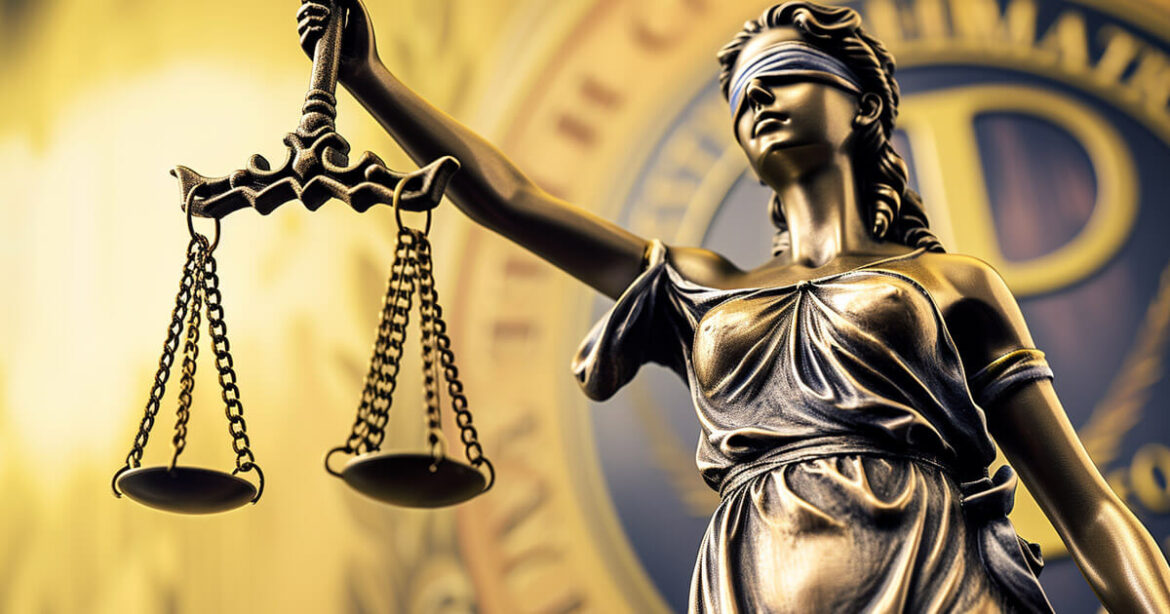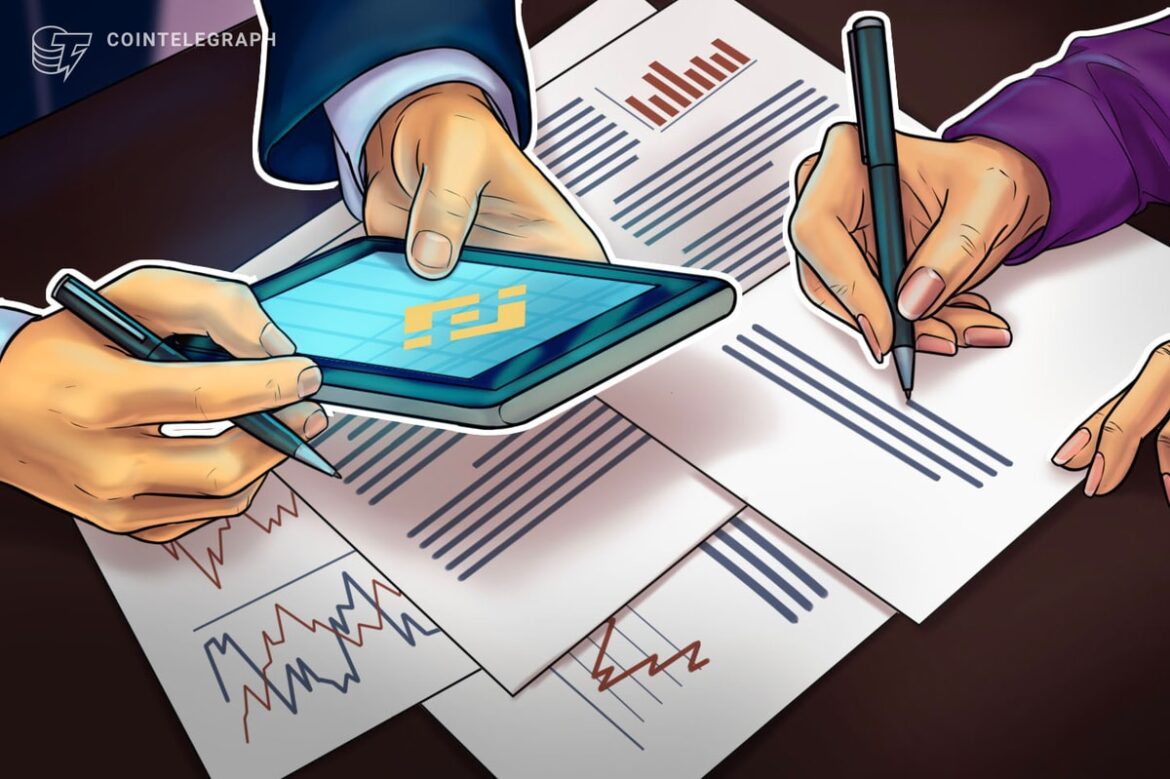
The Justice Department could file its long-rumored antitrust lawsuit against Apple Inc. as soon as Thursday, according to a report late Wednesday.
Source link
DOJ
DOJ charges trio in sim-swap scheme potentially linked to $400 million FTX crypto heist

The United States Department of Justice (DOJ) has taken legal action against three individuals—Robert Powell, Carter Rohn, and Emily Hernandez—for their involvement in a Sim-swapping scam in November 2022. The charges brought against them include fraud and identity theft.
This case has raised eyebrows due to its potential connection to the 2022 FTX hack, where the crypto exchange suffered a significant $400 million loss around the period it declared bankruptcy. Initial suspicions pointed towards the possibility of an insider job, with founder Sam Bankman-Fried (SBF) even facing accusations.
The indictment reveals that Powell, Rohn, and Hernandez obtained personal information from approximately 50 individuals. Subsequently, they manipulated service providers into transferring the victims’ details to their own devices. Armed with this information, the trio accessed authentication codes for financial accounts and crypto wallets.
Notably, Hernandez employed a fake ID belonging to an FTX employee to impersonate the individual at AT&T, successfully gaining access to their account. This move allowed them to obtain verification codes for accessing FTX’s crypto wallets and transferring over $400 million in digital assets.
While the indictment did not explicitly mention FTX, it highlighted that the $400 million theft took place between November 11 and 12, 2022—coinciding with the timeline of the FTX incident.
Blockchain analytical firm Elliptic stated that “FTX is [likely] the ‘Victim Company-1′” named in the indictment, adding that the recent movements of the stolen crypto assets may indicate they are no longer in the possession of the accused trio.
FTX bankruptcy managers have yet to respond to CryptoSlate’s request for comment as of press time.
This indictment emerges at a time when sim swap attacks are on the rise, mainly targeting prominent entities within the cryptocurrency space. Threat actors use these attacks to exploit social media accounts to promote phishing campaigns.
“It’s 2024 and we are still seeing far too many teams getting SIM swapped or phished on a regular basis resulting in millions stolen,” blockchain investigator ZachXBT said.
More recently, the U.S. Securities and Exchange Commission (SEC) experienced a sim-swap incident, leading to an exploit on its X account just last month.

Binance compliance commitments with the United States Department of Justice (DOJ) were unsealed on Dec. 8, revealing a significant government oversight of the crypto exchange operation and business activities.
In an analysis shared on X (formerly Twitter), John Reed Stark, a former Securities and Exchange Commission (SEC) official, classified the “exhaustive list” of Binance’s new compliance commitments as a “consulting firm’s wish list” that will likely shut down the platform.
Binance’s new obligations are described in an 11-page document and include cooperation to grant authorities access to documents, records, and resources at their request, including access to information related to its “former employees, agents, intermediaries, consultants, representatives, distributors, licenses, contractors, suppliers, and joint venture partners,” noted Stark.
Several sections of the DOJ’s criminal division will closely monitor the exchange’s activities, including the section for money laundering and asset recovery, the section for national security, the section for counterintelligence and export control, and the office for the Western District of Washington’s United States Attorney.
Previously disclosed, Binance’s plea deal with the U.S. government also includes five years of oversight by the Financial Crimes Enforcement Network (FinCEN). The unprecedented oversight of its activities will likely cost the exchange millions of dollars. Stark said:
“Binance’s settlement requires it to offer years of instantaneous access, audit, examination and inspection to DOJ, FinCEN and all types of financial regulators and law enforcement, exposing the company — and its customers — to a 24/7, 365-days-a-year financial colonoscopy.”
Related: Binance is now ‘totally different’: Interview with CEO Richard Teng
Binance and its former CEO, Changpeng “CZ” Zhao, have admitted to violating U.S. money laundering and terror financing laws, agreeing to pay $4.3 billion in fines on Nov 21.
SEC points to DOJ evidence to back up case against Binance
Binance’s recently unsealed court records are part of a new filing by the U.S. SEC, incorporating DOJ’s enforcement actions and settlements to strengthen its case against the exchange and Zhao.
The SEC pressed 13 charges against Binance on June 5, accusing the exchange of unregistered offers and sales of the BNB (BNB) and Binance USD (BUSD) tokens, the Simple Earn and BNB Vault products, and its staking program. The SEC also alleges that Binance failed to register its Binance.com platform as an exchange or broker-dealer clearing agency.
With its latest filing, the regulator asks the court to take a “judicial notice” of the facts presented in Binance’s settlement. “Which means that the SEC wants the Judge to declare a fact presented as evidence as true without a formal presentation of evidence,” said Stark.
The SEC is using the settlement to challenge Binance’s latest motion to dismiss the case, undermining the exchange’s arguments about its presence and operations in the U.S. over the past years.
Binance had more than three million U.S. customers by March 2018, according to its settlement with the DOJ. Approximately 30% of Binance’s web traffic originated in the United States as of June 2019.
Magazine: Lawmakers’ fear and doubt drives proposed crypto regulations in US
Binance representatives tipped off VIP traders about impending DOJ settlement in advance: Bloomberg

30As negotiations between Binance and U.S. authorities over legal violations came to a head in September, select high-value traders got an inside look at what was to come, according to new reporting from Bloomberg.
According to unnamed attendees of a Binance-hosted dinner in Singapore, company representatives suggested to VIP traders that Binance would likely pay around $4 billion to settle and survive its legal troubles with the Department of Justice. These personnel allegedly suggested the firm could afford to pay the penalty.
Binance has disputed these characterizations of the event but declined to clarify further.
Reckoning
In November, just two months later, Binance CEO Changpeng Zhao entered a guilty plea in a U.S. federal court for charges related to money laundering. Zhao stepped down as CEO as part of his plea agreement, while the company was fined $4.3 billion.
According to the U.S. Department of Justice (DOJ), Binance committed numerous financial crimes over the years, including failing to register as a money transmitter despite significant U.S. operations. It further alleged that Binance violated sanctions requirements, anti-money laundering rules, and know-your-customer protocols. Though Binance claimed to block U.S. users in 2019, the DOJ said it secretly kept providing services to critical high-net-worth traders.
The $4.3 billion settlement with the DOJ closes just one chapter of Binance’s ongoing legal saga. The Securities and Exchange Commission has filed separate charges against Binance, its U.S. affiliate BAM Trading, and founder Changpeng Zhao. The SEC alleges that Binance and its U.S. affiliate, BAM Trading, operated unregistered exchanges, broker-dealers, and clearing agencies while selling unregistered securities, including the BNB token and stablecoin BUSD, among other violations.
Zhao was succeeded as CEO by Richard Teng, who has held a number of leadership roles in the Binance organization since 2021. In a letter to VIP clients, incoming Teng expressed plans to deepen relationships as Binance enters its “best days” ahead. However, with some lawsuits still pending, storm clouds remain on the horizon.
DOJ sues eBay for ‘rolling coal’ devices; fines could hit $2 billion
F-450 coal rolling
Courtesy: Salvatore Arnone | Wikipedia CC
Ebay could be on the hook for as much as $2 billion in fines for allegedly allowing hundreds of thousands of “rolling coal” pollution devices and other products that violate environmental laws to be sold on its platform.
Rolling coal is the practice of installing a tampering device to pump more diesel into a vehicle’s engine than it can handle, leading it to spew out sooty black clouds of exhaust that pollute the air.
The practice is sometimes used as a form of anti-environmental protest. Coal rollers, or the drivers who engage in the action, may intentionally target Teslas, Priuses or other electric or hybrid vehicles.
The Department of Justice, on behalf of the Environmental Protection Agency, filed a lawsuit claiming that the e-commerce giant enabled the sale of more than 343,000 rolling coal devices. Each sale could spur a fine of up to $5,580 under the Clean Air Act.
Ebay denied the charges in a public statement, saying it has blocked “more than 99.9% the listings for the products cited by the DOJ, including millions of listings each year.”
“And eBay has partnered closely with law enforcement, including the DOJ, for over two decades on identifying emerging risks and assisting with prevention and enforcement,” the online retailer said.
The DOJ’s 61-page complaint included screenshots of emissions tampering devices that were listed on eBay’s platform.
Rolling coal devices are among several tools that can be used to disable or tamper with a vehicle’s pre-installed emissions control systems, which the EPA requires of all vehicles.
Under the Clean Air Act, tampering with a vehicle’s emissions control systems and selling those tampering tools are illegal. Only some states, like New Jersey, Maryland and Maine, have banned the practice in their own jurisdictions.
In addition to rolling coal products, prosecutors argue that eBay allowed the sale of more than 5,600 dangerous methylene chloride paint removers and at least 23,000 prohibited pesticide products, both of which the EPA banned for their safety hazards.
“eBay has the power, the authority, and the resources to stop the sale of these illegal, harmful products on its website. It has chosen not to,” prosecutors said in the filing.
SBF Trial: Bankman-Fried cannot rely on US unclear crypto regulatory regime in trial, DOJ says
The U.S. Department of Justice (DOJ) has argued that FTX founder Sam Bankman-Fried cannot rely on the country’s lack of clear regulatory frameworks for the emerging industry in his defense.
In an Oct. 4 letter to Judge Kaplan, the DOJ wrote that there are prohibitions on misappropriation of customer assets, which are the laws SBF violated. So, it would be wrong for the defense to mislead the jury that a cryptocurrency exchange can only be found guilty if the laws say that such platforms can never touch customer funds.
Besides that, the DOJ furthered that SBF could only use the argument that other crypto exchanges were “pooling and reallocating their customers’ funds” if he could establish that he knew about their practices and believed they were acting lawfully.
The DOJ concluded that:
“The Government alleges that the defendant not just misappropriated customer money, but made material misrepresentations to customers. The putative ‘absence of clearly applicable laws or regulations’ is irrelevant to whether the defendant made material misstatements or omissions. Accordingly, the existence or absence of regulation is not relevant to proof of the actus reus of the wire fraud charges.”
The U.S. crypto regulatory landscape has come under consistent criticism from several stakeholders over the lack of clear legal frameworks. Several crypto firms, including Ripple and Coinbase, have led crusades urging Congress to create laws tailored to the industry.
SBF trial began yesterday, Oct. 3, and is expected to last for the next six weeks. He faces seven primary charges, including wire fraud, conspiracy to commit wire fraud, conspiracy to commit commodities fraud, conspiracy to commit securities fraud, conspiracy to commit money laundering, and conspiracy to defraud the Federal Election Commission.
The post SBF Trial: Bankman-Fried cannot rely on US unclear crypto regulatory regime in trial, DOJ says appeared first on CryptoSlate.
Judge grants DOJ motions barring testimony of Sam Bankman-Fried’s witnesses

A federal judge has sided with the United States Department of Justice in motions aimed at precluding the testimony of seven witnesses on behalf of former FTX CEO Sam Bankman-Fried, or SBF.
In a Sept. 21 filing with the U.S. District Court for the Southern District of New York, Judge Lewis Kaplan granted in limine motions from prosecutors that would bar certain witnesses from testifying in SBF’s criminal trial. Kaplan provided different legal grounds for granting the DOJ’s motions against certain witnesses, which included the proposed testimony being “not at all clear,” irrelevant to the trial, or would otherwise seemingly obfuscate the facts of the case for the jury.
The witnesses at issue in the criminal case included Thomas Bishop, Brian Kim, Bradley Smith, Lawrence Akka, Joseph Pimbley, Peter Vinella and Andrew Di Wu, many of whom are professionals in the legal field. Court filings from Aug. 28 suggested that SBF’s legal team could have paid upward of $1,200 per hour for their testimony.
Kaplan left the door open for SBF’s defense team to call some of the individuals in response to testimony from witnesses for the U.S. government. However, he denied a motion from Bankman-Fried’s lawyers, which could have excluded testimony from Peter Easton, a University of Notre Dame accountancy professor who will speak on FTX customer fiat accounts.
Related: Sam Bankman-Fried says, ‘I did what I thought was right,’ in leaked docs: Report
Bankman-Fried is scheduled to appear before Kaplan for his first criminal trial on Oct. 3, where he will face seven criminal charges related to the alleged misuse of user funds at FTX and Alameda Research. He will face another five criminal charges in a March 2024 trial. SBF has pleaded not guilty to all counts.
Since a federal judge revoked his bail in August, SBF has been largely remanded to the Metropolitan Detention Center in Brooklyn until the start of his trial. On Sept. 21, a three-judge panel denied an appeal from the former FTX CEO’s legal team arguing for early release largely on First Amendment grounds.
Magazine: Can you trust crypto exchanges after the collapse of FTX?
DOJ calls SBF’s fraud allegation defense ‘irrelevant,’ requests additional info

The lawyers representing the United States Department of Justice (DOJ) filed a new court document on Aug. 29 arguing that Sam “SBF” Bankman-Fried should provide additional disclosures to his planned defense.
The document called the current proposed argument, which claims his lawyers approved of his alleged fraud while he was still at FTX, “irrelevant.” The filing requests that the court order the defendant to procure “additional notice” and “pretrial discovery.”
“If the defendant does not provide additional disclosures, the court should preclude irrelevant, confusing, and prejudicial questioning, evidence, and arguments about the involvement of attorneys.”
Previously, the lawyers representing SBF argued that the legal team leading FTX led him to act “in good faith” and that “reliance on counsel is relevant to the question of intent.”
The former legal team behind FTX was hit with a lawsuit on Aug. 7 alleging that it had set up “shadowy entities” that set the executives up to implement “creative but illegal strategies” to perpetuate fraud.
Attorney Damian Williams, who penned the recent letter to the court, argued that Bankman-Fried needs to specify the legal advice he was given or else rethink his defense.
The DOJ said the defendant has not provided an “exhaustive” list of the topics in which there is claimed to be attorney involvement. Additionally, SBF has yet to identify “the contours of the attorney involvement” nor the bases and details of the defense. He also noted the lack of documents in support of, impeaching or undermining his defense.
Related: Sam Bankman-Fried’s lawyers appeal decision on bail, citing First Amendment issues
The day after the filing, on Aug. 30, SBF’s lawyer Mark Cohen responded to the DOJ’s filing, countering that “sufficient” disclosures had already been made regarding the defense and saying his client’s conditions in jail violate the U.S. Constitution.
“At the present time, the defense is unable to adequately prepare for trial and prepare the defense, which is a violation of Mr. Bankman-Fried’s Sixth Amendment rights.”
He also called the available internet connection “woefully inadequate.” On Aug. 23, the court ruled that SBF could meet with his lawyers outside of jail with a 48-hour notice.
In response, on Aug. 25, the lawyers pushed for temporary release and objected to the aforementioned deal.
SBF has already pleaded not guilty to multiple counts of fraud in the aftermath of the FTX collapse in November 2022.
Magazine: Deposit risk: What do crypto exchanges really do with your money?
Tornado Cash co-founders charged by DOJ; one sanctioned by U.S. Treasury while the other arrested by FBI
The U.S. Department of Justice (DOJ) announced charges against two individuals who co-founded Tornado Cash on Aug. 23.
The agency unsealed an indictment charging Roman Storm and Roman Semenov with various wrongdoings related to creating, operating, and promoting Tornado Cash — a once-popular Ethereum-based coin mixer that obscured crypto transactions.
U.S. Attorney Damian Williams said:
“While publicly claiming to offer a technically sophisticated privacy service, Storm and Semenov in fact knew that they were helping hackers and fraudsters conceal the fruits of their crimes.”
The DOJ further noted that Tornado Cash handled $1 billion in criminal proceeds and laundered funds on behalf of North Korean cybercrime groups.
The agency’s complete list of charges against the two Tornado Cash co-founders includes conspiracy to commit money laundering, conspiracy to commit sanctions violations, and conspiracy to operate an unlicensed money-transmitting business.
The DOJ said that Storm has been arrested in Washington State and will be presented in court, while Semenov has not yet been located or arrested.
The U.S. Treasury separately announced sanctions against Semenov, an action that will prohibit other parties from transacting with him. The agency noted that those who transact with Semenov may be designated themselves.
A third developer, Alexey Pertsev, was arrested in the Netherlands in August 2022. The DOJ did not announce charges against Pertsev today. Treasury mentioned Pertsev’s past arrest but did not announce sanctions against him (or against Storm).
Treasury previously sanctioned mixer
The Treasury initially imposed sanctions on Tornado Cash in August 2022, effectively banning mainstream access to the coin mixer.
However, Tornado Cash continued to operate due to its decentralized nature and reliance on cryptocurrency. The platform has even survived other trials: Tornado Cash’s governance system was notably hacked in May 2023, leading to a theft of less than $1 million. Governance coin holders later regained control through a new proposal.
Data from DefiLlama suggests that Tornado Cash remains active with $245 million in total value locked (TVL), down from its all-time high TVL of $1.1 billion.
The post Tornado Cash co-founders charged by DOJ; one sanctioned by U.S. Treasury while the other arrested by FBI appeared first on CryptoSlate.
DoJ says SBF has tried to ‘corruptly influence witnesses’ multiple times; urges bail revocation
The U.S. Department of Justice (DoJ) urged federal judge Lewis Kaplan to revoke FTX founder Sam Bankman-Fried’s bail in a filing on July 28. The DoJ argued that SBF has “flouted even the increasingly strict conditions” placed on him multiple times.
The DoJ’s request comes after SBF surrendered 8 pages of former CEO of Alameda Research Caroline Ellison‘s diary entries in court on July 27.
The DoJ stated that SBF leaked Ellison’s diary to the New York Times to “intentionally harass” her. The DoJ claimed that SBF’s goal in leaking the documents was to “hinder, prevent, or dissuade” Elisson from testifying against him. Ellison signed a plea deal in December and is set to testify in SBF’s trial scheduled in October.
With multiple infractions of bail conditions and his recent conduct, which “reinforces his intent to influence witnesses,” it is necessary to jail SBF, the DoJ said, adding:
“…no set of pretrial release conditions can adequately assure the safety of the community and that the defendant is unlikely to fully abide by any conditions of release.”
Witness tampering and evading bail conditions
SBF was first accused of witness tampering in January for contacting the General Counsel for FTX US Ryne Miller over the messaging app Signal. In the same month, SBF was accused of violating his bail conditions by using a virtual private network (VPN).
At the time, SBF claimed he used the VPN to “watch football.” However, prosecutors discovered that the football matches he purportedly watched using a VPN were freely available on television, per the DoJ filing. Following these infractions, SBF’s bail conditions were modified to increase restrictions twice in January, twice in February, and a fifth time in March.
SBF leaking Ellison’s diary to the media was not just a second attempt at witness tampering but also an attempt to influence prospective jurors, the DoJ claimed, noting:
“…the defendant’s communications with the media were intended to affect the public’s—including prospective jurors’—impression of the defendant’s guilt.”
The DoJ added that SBF intended to “portray a key cooperator testifying against him in a poor and inculpatory light” by leaking the diary, which was not part of the prosecution’s discovery material. It was also an “effort to influence or prevent the testimony of other potential trial witnesses by creating the specter that their most intimate business is at risk of being reported in the press,” the filing noted.
Although SBF has no criminal history, the DoJ argued that he faces a potential sentence of over 100 years, demonstrating the issue’s seriousness and the need for a fair trial.
The DoJ concluded:
“What the defendant may not do, and what he has now done repeatedly, is seek to corruptly influence witnesses and interfere with a fair trial through attempted public harassment and shaming.”
The post DoJ says SBF has tried to ‘corruptly influence witnesses’ multiple times; urges bail revocation appeared first on CryptoSlate.










